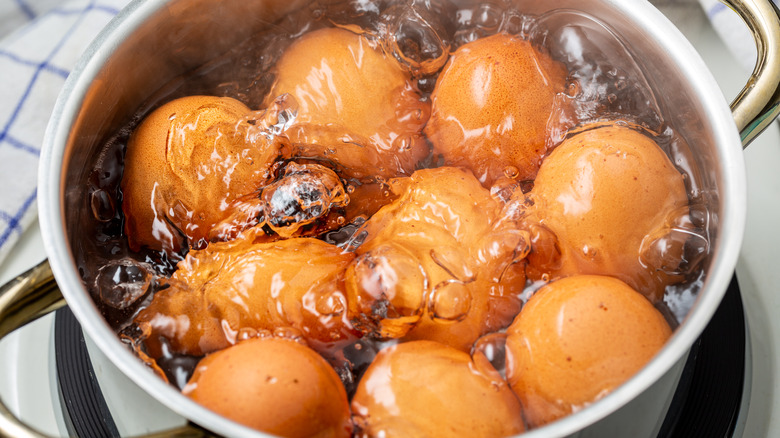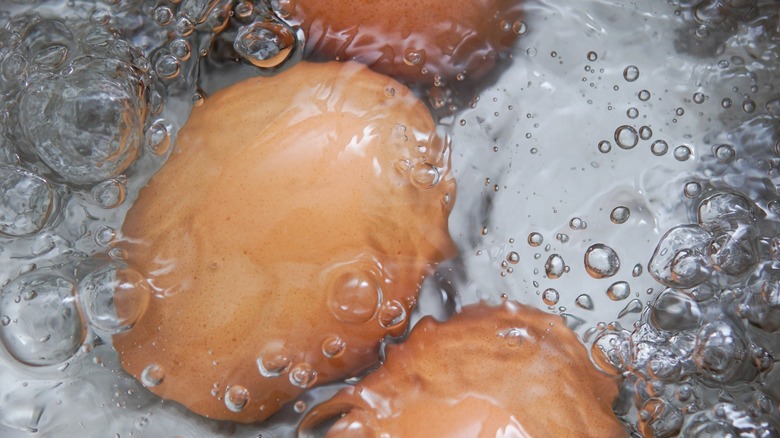You Need Patience, Not More Heat, When Cooking Eggs At High Altitude
If you've ever gone camping in the high mountains, one of the most striking things you'll notice when taking out the stove and starting to cook your favorite camping recipes is that things take much longer to boil than normal. You won't notice much of a change when you're at lower altitudes, like 500 or 1,000 feet above sea level. At that point, cooking can take place pretty quickly, like down on the ground. However, you'll immediately start to notice the difference when you venture beyond 3,000 feet, where it will take much longer and harder for you to boil and cook something. Boiled eggs, for example, only take four to five minutes to prepare down on the ground, but at altitude, it may take as much as 15 minutes to finish cooking.
If you aren't armed with the proper technique, it can be quite frustrating to prepare your food. So, what changed when you cross this invisible altitude threshold? At 3,000 feet and beyond, the lower atmospheric pressure affects the boiling point of water. This change in boiling point is the reason cooking takes longer and can be frustrating if you're not prepared with the right techniques.
But it's essential to note that this rule only applies to moist-heat cooking methods like boiling. Altitude won't affect dry-heat cooking techniques such as roasting and baking. So, if you want fried or scrambled eggs, don't try to compensate by using a hotter pan, or you might end up with burnt eggs!
Atmospheric pressure is the culprit
As you go higher, air pressure drops. This phenomenon leads to water evaporating quicker than normal and boils at a lower temperature than the usual 212 degrees Fahrenheit at sea level. For every 500 feet you ascend, the boiling temperature of water drops by 1 degree Fahrenheit. Thankfully, the temperature difference is small enough that most people won't even notice the change. As we mentioned earlier, it's only at 3,000 feet and above that the water's boiling temperature becomes low enough to be notable when you cook something.
The key to cooking at altitude is to be patient rather than cranking up the heat. At 5,000 feet, the water can only reach 203 degrees Fahrenheit before evaporating. No matter how much heat you apply, the temperature won't go any higher. Turning up the heat will only waste your fuel. Depending on the altitude, eggs will take longer than usual, but they will cook perfectly if given enough time. Leave them on the stove for a bit longer, and you'll have delicious boiled eggs for your meal.

